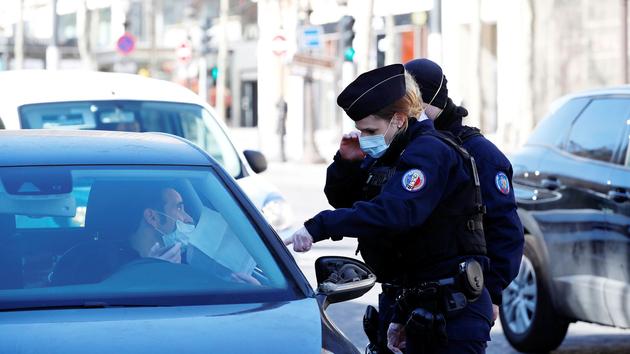The emergency law 2020-290 to face the epidemic of covid-19 and the decree 2020-293 of March 23, 2020, published this March 24, 2020 in the Official Journal, now codify all travel and mobility on the public highway and strengthen the penalties for breaches of containment rules.
To derogate from the confinement rule, the user, controlled by the police, must justify a written attestation of derogation justifying:
1 ° Journeys between the domicile and the place or places of exercise of the professional activity and professional journeys which cannot be postponed;
2 ° Travel to make purchases of supplies necessary for the professional activity and purchases of basic necessities in establishments whose activities remain authorized by article 8 of this decree;
3 ° Travel for health reasons with the exception of consultations and care that can be provided remotely and, except for patients with a long-term condition, those who can be deferred;
4 ° Travel for compelling family reasons, for the assistance of vulnerable people and for childcare;
5 ° Brief trips, within the limit of one hour daily and within a maximum radius of one kilometer around the home, linked either to the individual physical activity of the people, to the exclusion of any collective sports practice and any proximity with other people, either on a walk with the only people gathered in the same home, or with the needs of pets;
6 ° Travel resulting from an obligation to present to the national police or gendarmerie services or to any other service or professional, imposed by the administrative police authority or the judicial authority;
7 ° Travel resulting from a summons from an administrative court or the judicial authority;
8 ° Travel for the sole purpose of participating in missions of general interest at the request of the administrative authority and under the conditions it specifies.
Under the new provisions of article L.3136-1 of the Public Health Code, offenders face a fourth class contravention fine (lump sum fine of 135 euros and up to 750 euros if the fine is imposed) by the police court).
The law now provides that in the event of a new violation found again within fifteen days, the offender is liable to a fine of 1,500 euros.
If the user is fined more than three times within thirty days, the facts are punishable by six months' imprisonment and a fine of 3,750 euros, as well as the additional penalty of community service, and the additional penalty of suspension, for a maximum of three years, of the driving license when the offense has been committed using a vehicle.
This new offense is already coming up against the effects of contesting the first of the contraventions drawn up and constitutes what seems to be a legal imbroglio which will undoubtedly be debated before the courts.
Indeed, how can it be envisaged that the offense will be constituted if one of the contraventions is disputed by the offender and has not yet been finally judged by a court (respect for the principle of the presumption of innocence), and how can criminal prosecution be considered if the initially contested ticket is canceled by the judge?
In addition to the national police officers and the national gendarmerie, the law now gives jurisdiction to municipal police officers, field guards, controllers of the prefecture of police and surveillance officers of Paris, to note and verbalize the offense.
However, the Prefect may take more restrictive traffic measures when local circumstances require.
The mayor can also impose a night curfew by municipal decree, the violation of which is punishable by a fine of 38 euros in addition to the confinement penalties.
Finally, let us remember that the offender could also be punished with penalties for the offense of refusing to comply in the event that the police order him to stop. The offender could also be prosecuted for an offense of refusing to submit to checks concerning his vehicle or his person if he does not present, for example, the required administrative documents.
In such a situation, the penalties incurred are much more dissuasive: in particular the loss of six points on the driver's license, prison terms, tort fine, confiscation of the vehicle, suspension of a driver's license, etc.

